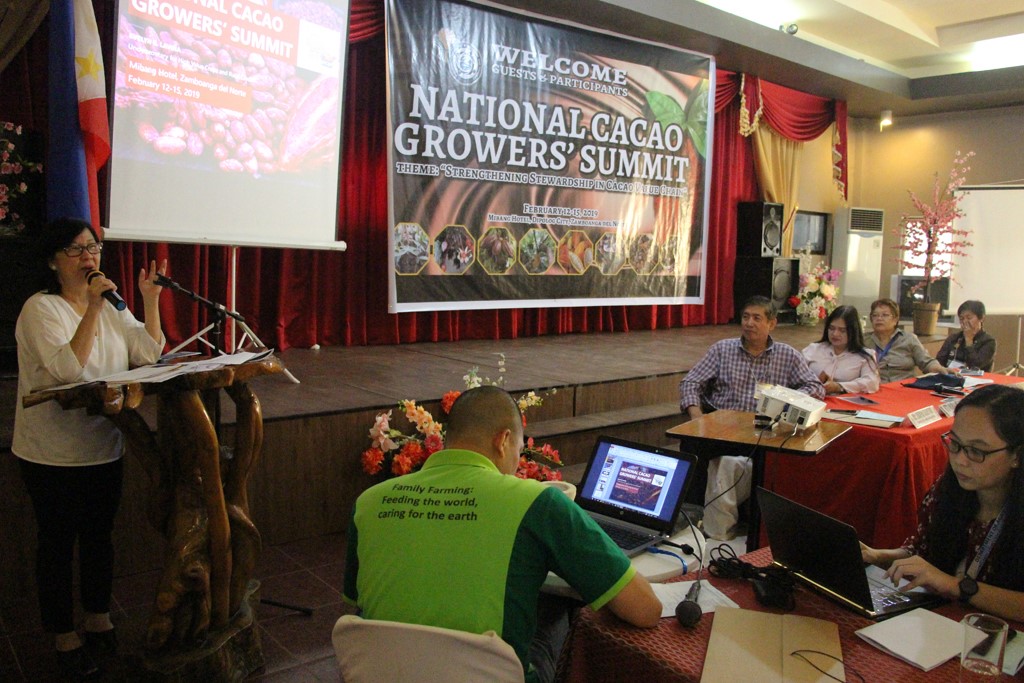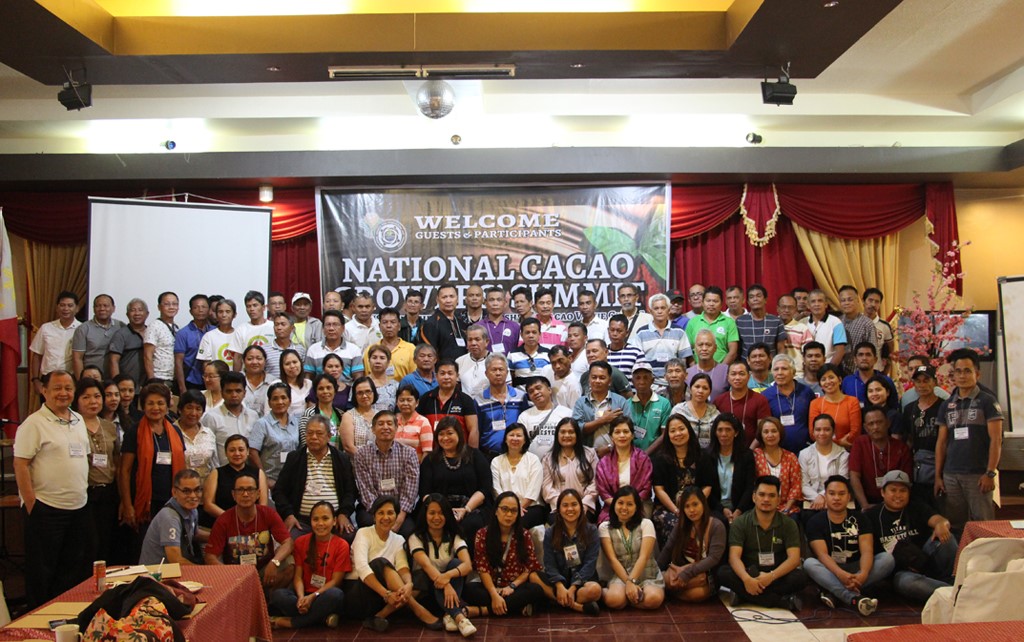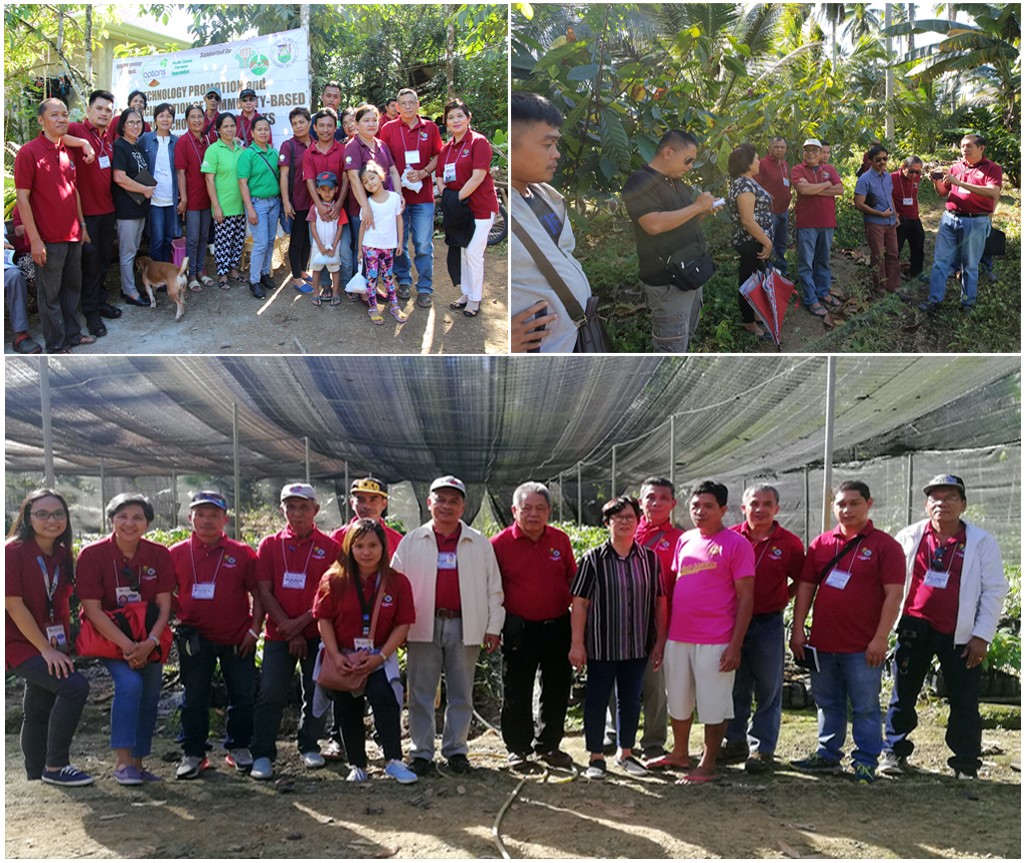
Given the need to further strengthen the local cacao industry, farmers, growers and businessmen alongside representatives from the academe and government agencies convened for the National Cacao Growers’ Summit from February 12 to 15, 2019 at Mibang Hotel in Dipolog City, Zamboanga del Norte.
Centered on the theme: “Strengthening Stewardship in the Cacao Value Chain”, the summit was spearheaded by the Philippine Council for Agriculture and Fisheries (PCAF) and its Cacao Industry Development Sub-Committee. The activity served as a venue for industry updates and developments, identifying concerns and problems that hinder progress in the cacao sector and coming up with prospective policy recommendations in order to both address concerns and bolster the value chain of cacao.
Success stories of selected cacao farmer-beneficiaries of the Department of Environment and Natural Resources (DENR), Department of Agrarian Reform (DAR), Philippine Coconut Authority (PCA) and Department of Agriculture’s High Value Crops Development Program (DA-HVCDP) were shared to the participants. They were also briefed on the different interventions being undertaken by the state in order to boost local cacao.

Resource persons from the Department of Science and Technology-Philippine Council for Agriculture, Aquatic and Natural Resources Research and Development (DOST-PCAARD), and DA attached bureaus and agencies, such as the Bureau of Agricultural Research (BAR), Philippine Center for Postharvest Development and Mechanization (PhilMech), Agricultural Credit and Policy Council (ACPC) and Philippine Crop Insurance Corporation (PCIC) shared their respective programs for cacao in the fields of research and development, post-harvest, credit support and insurance.
Addressing the commodity stakeholders at the three-day meet, DA Undersecretary for High Value Crops and Rural Credit Evelyn Laviña stressed the importance of the government and private sector having a sound partnership for the cacao industry development.
“Everything should come from the partnership of the government and those from the private sector. It is the government that makes and implements policies, while the private sector is expected to make something that combines quality and quantity,” stressed Undersecretary Laviña.
She added that farmers and growers in the sector should be more open to establishing partnerships and expanding networks in order to maximize the growth of their respective cacao-based businesses. Undersecretary Laviña also emphasized that they should never compromise the quality of their produce for profit.
“Never, ever do a shortcut. Do not sacrifice quality for quantity, as they go hand-in-hand. If you’ve sacrificed something in terms of quality, remember that it is not only you that will be affected but the whole cacao industry of the country,” she remarked.
The summit also saw the conduct of a Field Learning Exposure trip where participants visited selected cacao cooperatives in Zamboanga del Norte to learn about ideal farming practices. Aside from presentation of equipment and facilities, the exposure activity allowed farmers and growers to interact with each other in sourcing out ideas regarding approaches and techniques for improving crop production and harvest, among other activities.

Towards the end of the summit, a workshop was conducted to identify policy gaps and constraints in the areas of Inputs/Production, Processing/Postharvest, and Credit/Marketing, and the recommended actions to address these. Among the issues identified were inadequate information dissemination of guidelines, limited training and capacity building opportunities and provision of support for establishment of facilities for cacao processing, among others. In turn, these are expected to be consolidated and made into policy resolutions with the intent of forwarding these to policymakers in developing policies and related legislature, all for the benefit of the cacao industry and its stakeholders.
In closing, PCAF Executive Director Sarah Gutierrez-Cayona expressed optimism that the summit will pave the way for a more solid partnership among the country’s cacao stakeholders.
“Sa pagtatapos ng pagtitipon na ito, ay umaasa ako na tayong magkakasama sa industriya ng cacao ay namalayan ang mga hangarin na nais nating makamtan. Ang mga rekomendasyong pang-polisiya na inyong napagkasunduan ay gagawan ng mga kaakibat na resolusyon para sa kapakanan ng sektor ng cacao sa Pilipinas. Sapagkat sa pagpapalakas ng ating ugnayan bilang magkaakibat sa pamahalaan at sa pribadong sektor ay lalo nating mapapaunlad ang sistema ng kalakalan sa cacao, para sa ikabubuti ng kasalukuyan at mga susunod na salinlahi ng mga Pilipino,” concludes Executive Director Gutierrez-Cayona. –AE











